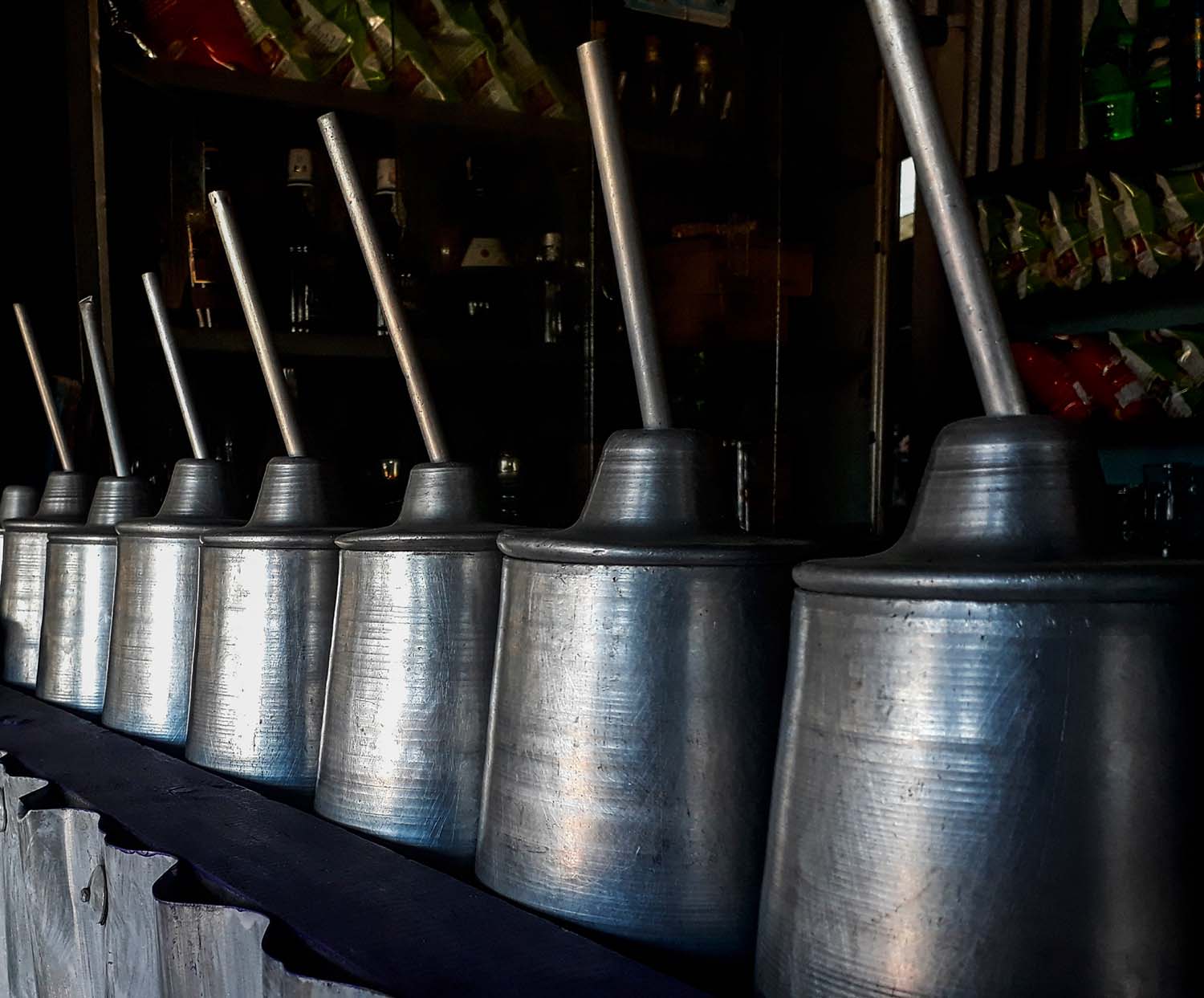Money
Eastern hill village prepares to legalise ‘kodo ko raksi’
Residents believe liquor production will create jobs and encourage millet cultivation.
Chandra Karki
Kodo ko raksi, distilled liquor made from finger millet, has a long history in the mountains and hills of Nepal. But its commercial production and sales are illegal.
This is about to change with Chhathar Rural Municipality in the eastern hill district of Tehrathum working to pass a law to legalise commercial production, standardisation, branding and marketing of the traditional alcoholic beverage.
Locals are enthusiastic. They believe that the production and marketing of kodo ko raksi along modern lines will create jobs, encourage millet cultivation and boost rural incomes. The product could also be a potential export in the future, they say.
“We are drafting a law for the commercial production, standardisation, branding and marketing of kodo ko raksi,” said Santabir Limbu, chairman of Chhathar Rural Municipality.
“This is included in the annual programme and policy of the provincial government too.”
According to Limbu, the local government is drafting the law in coordination with the provincial and federal governments. “Once the law is passed, it will allow the sale of local products in the market.”
Experts say that if there is a proper law, Nepali local alcohol can create a niche in the global market too.
Kodo ko raksi is linked to the traditions of Nepal's indigenous communities, primarily the Gurung, Magar, Rai, Limbu, Tamang and Newar. The liquor is indispensable in the religious ceremonies and festivals of different communities.
In 2018, CNN placed Nepal’s Raksi, an alcoholic home brew, in its list of the World’s 50 most delicious drinks.
“Made from millet or rice, raksi is strong on the nose and sends a burning sensation straight down your throat that resolves itself into a surprisingly smooth, velvety sensation. Nepalese drink this home brew to celebrate festivals, though we think that the prized drink itself is the reason to celebrate,” according to CNN, a multinational news channel and website headquartered in Atlanta, the United States.
Kodo ko raksi is made by boiling millet in a cauldron, a large copper or brass pot used for cooking over an open fire. The boiling process takes three to four hours.
The millet is then put in a large bucket of water and allowed to soak for one hour. It is then mixed with marcha, yeast made from various wild herbs and flour. Distillation of the fermented millet produces the alcoholic drink.
A few years ago, Koshi Province had formed a 10-member committee to do a feasibility study for the commercial production of kodo ko raksi.
The committee under the coordination of Purna Kumar Loksom, a member of the provincial planning commission, was asked to present a report on production, employment creation, poverty alleviation and export promotion.
As the prevailing law is an obstacle to the commercial production, consumption and marketing of domestic alcohol, especially that made from millet, the committee suggested amending the law or making a new one to legalise its commercial production and sale.
The rural municipality is also studying the financial and technical aspects of the project.
Limbu said that farmers need to be provided assistance to increase the production of millet.

Finger millet is the fourth largest cereal crop in terms of acreage and production in Nepal after rice, maize and wheat.
The grain is a relatively cheap and economical source of food for the poor people dwelling in inaccessible hilly regions of the country, according to different research papers. It is rich in calcium, and iron and nutritionally superior to other food crops in terms of energy, proteins, vitamins and other minerals.
Finger millet is mainly consumed in the form of porridge and flatbread, but a significant part of the harvest is utilised for producing the local beverage in rural Nepal, according to the papers.
In Nepal, millet including proso and foxtail millets are produced on 267,071 hectares and output stands at 339,462 tonnes annually, according to the statistics of the Ministry of Agriculture and Livestock Development.
Gandaki and Koshi provinces are the largest producers of millet in Nepal.
"The practice of making and selling alcohol from millet using local resources has continued for centuries," Limbu said. All the districts in Koshi Province produce homemade alcohol.
He said that the rural municipality has been providing subsidies to farmers who cultivate millet on barren land.
“After the [federal] law is amended, those who produce domestic alcohol have to get permission from the rural municipality for its sales and distribution.”
The rural municipality said that measuring the quality of the produced liquor would allow companies to market it.
For identification, the same type of logo and sticker prepared by the rural municipality should be put on the bottles by the producer.
"If domestic alcohol is sold, distributed or produced in violation of the law, the rural municipality will fine the producers and distributors as well," said Limbu.
“Passing the law will decrease the illegal sale and distribution of local alcohol. Registration of the companies and manufacturing plants and sales means the tax scope also expands.”




 16.12°C Kathmandu
16.12°C Kathmandu














